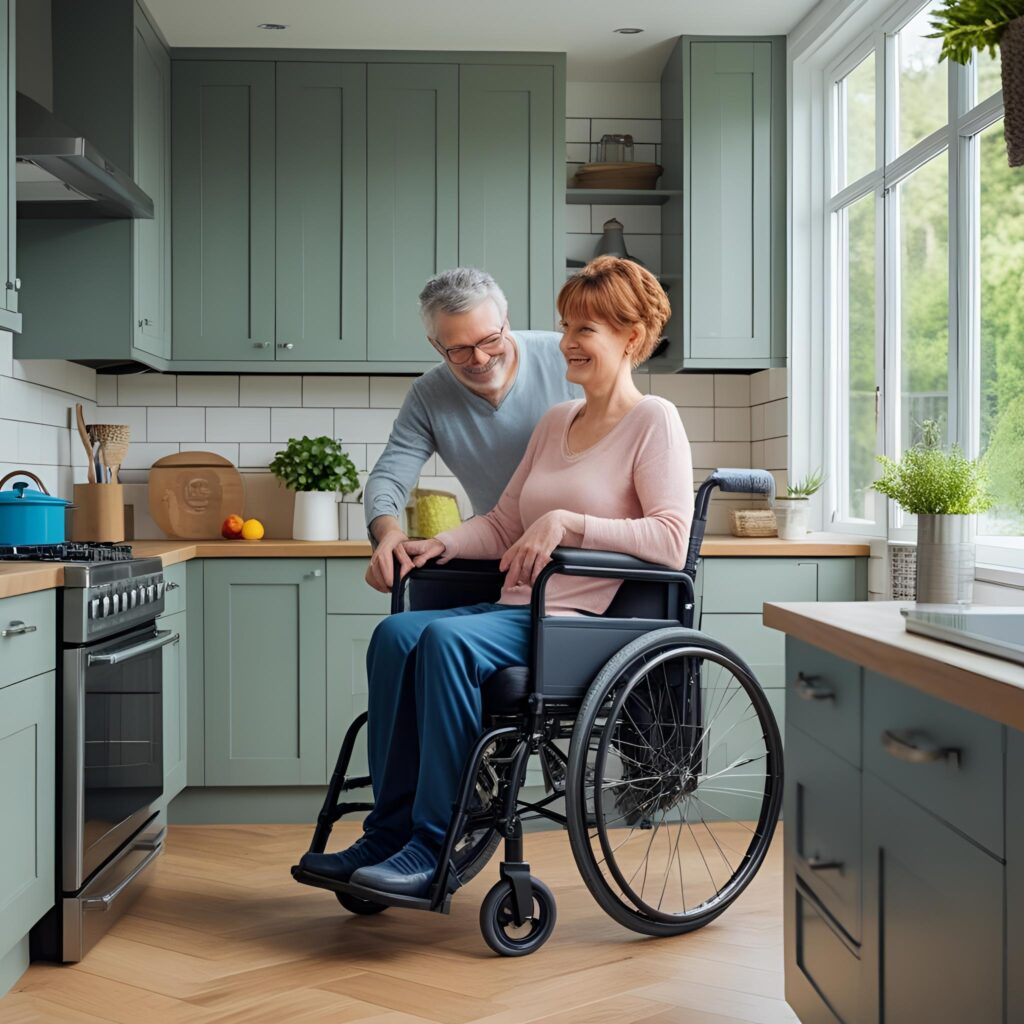When it comes to supporting individuals with disabilities, thoughtful and consistent assistance in daily living tasks can significantly improve their independence, safety, and overall quality of life. Whether you’re a caregiver, family member, or neighbor, knowing what to help with — and how — can turn everyday acts into empowering gestures. Here are the top 5 household tasks to assist disabled people, each offering practical value and dignity-centered support.
1. Mobility-Friendly Cleaning and Organization
Why it matters: Cluttered or poorly arranged spaces can be hazardous for individuals using wheelchairs, walkers, or with limited vision or dexterity.
How to help:
-
Clear walkways and secure loose rugs or wires.
-
Organize commonly used items at reachable heights.
-
Use labels or color-coded systems for those with cognitive impairments or visual challenges.
-
Opt for tools like long-handled dusters and automatic vacuums to reduce physical strain.
Tip: Ask the individual about their preferred layout—organization should enhance their autonomy, not override it.
2. Meal Preparation and Adaptive Cooking Support
Why it matters: Cooking is a basic but complex task that involves strength, balance, and fine motor skills — all of which may be affected by various disabilities.
How to help:
-
Pre-chop vegetables or use adaptive kitchen tools like rocker knives or one-handed cutting boards.
-
Organize pantries and fridges so essentials are easy to grab.
-
Prepare freezer-friendly meals or help with meal planning apps.
-
Assist with grocery shopping or setting up grocery delivery services.
Tip: Empower them with tools like talking kitchen scales or automatic can openers to maintain their sense of independence in the kitchen.
3. Laundry and Clothing Management
Why it matters: Doing laundry often involves bending, carrying heavy loads, and reaching — all of which can be difficult or unsafe.
How to help:
-
Carry laundry baskets to and from machines.
-
Help fold clothes or hang items in an accessible wardrobe.
-
Use laundry pods instead of heavy detergent bottles.
-
Label drawers or bins with images or large text for easy identification.
Tip: Choose easy-care clothing or adaptive garments that are easier to put on without assistance.
4. Bathroom Safety and Hygiene Assistance
Why it matters: The bathroom is one of the most accident-prone areas of any home, and assistance here supports both safety and dignity.
How to help:
-
Install grab bars, non-slip mats, and a shower chair or transfer bench.
-
Help maintain cleanliness of high-use surfaces like sinks, handles, and floors.
-
Refill hygiene supplies regularly in accessible locations.
-
Assist with personal care if required and appropriate, always with consent and respect.
Tip: Encourage autonomy through the use of adaptive grooming tools like electric toothbrushes with larger grips or hands-free hair dryers.
5. Scheduling, Medication, and Digital Assistance
Why it matters: Keeping track of appointments, medication, and digital access is crucial for health and social inclusion — yet can be challenging for those with cognitive or motor limitations.
How to help:
-
Set reminders or alarms for medications and appointments.
-
Organize pillboxes weekly or help manage prescriptions online.
-
Assist in navigating apps for healthcare, food delivery, or social connection.
-
Offer help with voice assistants like Alexa or Google Home to perform tasks hands-free.
Tip: Create printed weekly planners or visual aids if digital solutions aren’t ideal.
Final Thought
Support doesn’t always mean doing things for someone—it often means making it easier for them to do it for themselves. When you focus on empowering rather than replacing autonomy, you’re not just assisting—you’re respecting and uplifting. These five household tasks may seem simple, but they form the foundation of a life lived with greater confidence, safety, and self-respect.

